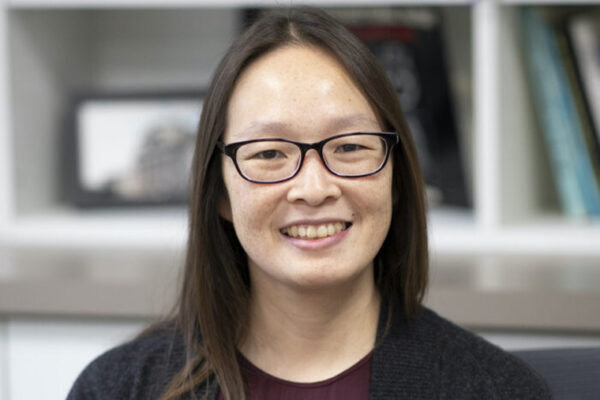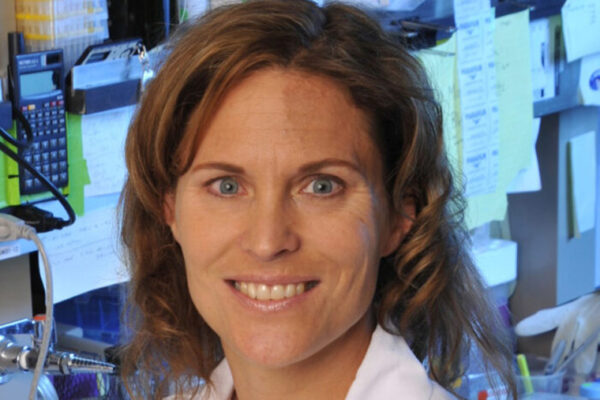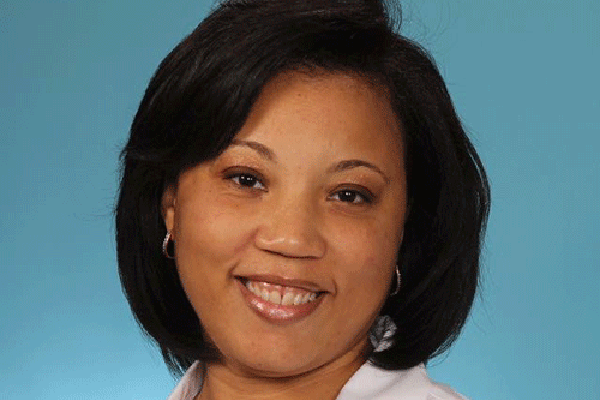Victoria J. Fraser, MD, blazed a path to the top of academic medicine, and then turned her attention to smoothing out the bumps on the path for women and members of other under-represented groups who came behind her.
As chair of the John T. Milliken Department of Medicine, Fraser is the first female head of the largest department at the medical school, overseeing more than 750 faculty and a staff of close to 2,500. The department received $187 million in research funding in 2021, more than any other research enterprise at the school, and is the largest clinical service at Barnes-Jewish Hospital. As head of the department, as well as the recipient of numerous teaching, research and mentoring awards, Fraser commands immense authority and respect as a physician, scientist and leader. She has used that eminence to advocate for equity in academic medicine and to address structural barriers that limit the careers of women and members of other under-represented groups.
Fraser came to Barnes-Jewish Hospital 34 years ago as a fellow in infectious diseases and joined the faculty at the School of Medicine in 1991. An expert in health-care epidemiology, she focused her research on preventing and controlling medical errors, hospital-acquired infections and adverse events. This research and her work with the BJC HealthCare Infection Control Consortium led to dramatic declines in the rates of hospital-associated infections at BJC facilities.
She was appointed chair of the Department of Medicine and physician-in-chief for Barnes-Jewish Hospital in 2012. Under her leadership, the Department of Medicine has nearly doubled its faculty, extended its research portfolio and clinical operations, and expanded clinical trials. In addition, Fraser has led the development of new initiatives for equity, diversity and inclusion. She instituted an assessment of gender-based pay equity across the department; changed annual performance evaluations to include recognition of non-traditional academic work disproportionately performed by women and members of underrepresented groups, such as mentoring, committee participation and program development; and restructured search committees to enhance recruitment of large, diverse pools of candidates.
Washington sat down with Fraser to talk about how she became a medical trailblazer, and why she devotes so much energy to diversity, equity and inclusion efforts.
Who and what inspired you to become a doctor and medical researcher?
I came from a family where education was a really high priority. My father was a lawyer who had gone to night school at Saint Louis University (SLU) while he worked full time on the railroad, and my mother was a speech and drama teacher. My mother was in a PhD program at SLU, but when she finished her master’s, she was told that she probably should stop. She basically was told that to be a wife and a mother was her higher calling, and that she shouldn’t pursue a PhD. They told her she could be a teacher, which she did.
I think that’s a reminder to us all that many people have been told that they couldn’t be something, or they shouldn’t be something. We have to help every child really feel that they have tremendous potential and that every career is open to them with hard work and determination.
I loved science in high school and in college, and I really liked working with people, so medicine seemed like an ideal career in which I could follow both of my passions. That turned out to be true. I’ve been very fortunate to love every aspect of medicine. I like patient care a lot. I like teaching, and I learned to do research here at Washington University. I had a little bit of experience doing research in medical school, but I really thought I was going to be a full-time clinician. But Dr. Gerald Medoff, who was the division chief of infectious diseases [ID] at the time, encouraged me to write grants and to think about doing research. He would find grant RFAs [requests for applications] for me and put them on my desk and tell me to apply for them. Bill Powderly, who became chief of ID after Gerry Medoff, and Bill Peck, who was a former dean here, were both very supportive of me and found many ways to mentor me and encourage me in different leadership roles.
What experiences prepared you to lead the largest department at the School of Medicine?
A lot of experiences came together to prepare me for this role. As part of my research in health-care epidemiology, I was managing large teams engaged with studying risk factors and outcomes of hospital-acquired infections and serious patient safety events. I had the opportunity to work with many different groups of physicians and staff in multiple hospitals and learn to manage budgets and people, develop strategic plans and so on. And then I also was fortunate to be able to run the infection-prevention program and the occupational health programs for Barnes-Jewish Hospital, which gave me some insights into hospital operations. In those roles, I worked with hospital leaders throughout BJC as we integrated infection-prevention programs across all the BJC hospitals. So that gave me experience with integrating disparate programs into a unified program to meet the needs of people in a variety of settings. And then when I became the co-director of the Division of Infectious Diseases, I got even more experience with clinical operations.
You’ve had many accomplishments as department chair, but one thing that stands out is your work enhancing diversity, equity and inclusion. Why have you made it a priority?
As much as we like to think that academic medicine is a meritocracy, it really isn’t. Like many industries, academic medicine has structural sexism, structural racism embedded in its very foundation and core.
Victoria Fraser, MD
When I first became the department chair, lots of people came to me with concerns about diversity, inclusion and equity. That helped me understand that things were not as good as they could be here. I’ve been here for more than 30 years, and I have always felt that Washington University was an incredibly nurturing place. I’ve had wonderful mentors here. So I was initially a bit surprised that people were telling me they felt disenfranchised or felt as if they weren’t being treated equitably. Many people of my generation don’t easily see or feel inequity because when we were coming up, the way you succeeded was by working harder or doing things better and not really thinking about gender or equity. You had to put your head down and power through it.
But the older I’ve gotten, the longer I serve in this role, the more I talk with young women and people of color and read about inclusion and equity and anti-racism, the more I realize what I hadn’t been seeing. As much as we like to think that academic medicine is a meritocracy, it really isn’t. Like many industries, academic medicine has structural sexism, structural racism embedded in its very foundation and core. The way we’re going to make it better is to recognize that and to dismantle it and create new structures that will make things more equitable.
What are the most challenging and most rewarding parts of your job as chair of the Department of Medicine?
The most challenging part of this job has clearly been the COVID pandemic for the past two-and-a-half years now. The unknowns in terms of how the disease was transmitted and the lack of treatments, combined with the tremendous pace of the epidemic, made it difficult to identify ways to take care of patients early on. And then to do that in an environment in which you were putting your colleagues and your trainees at risk and then trying to continue to support people to lean in and to do their best, despite the hardships on their families and the tremendous hours that people were putting in … all that has been, and continues to be, a challenge.
The most rewarding part of this job is watching trainees and junior faculty who I’ve recruited become successful and independent. It is really terrific to see people get their K Career Development awards — which are designed to help early-career scientists develop an independent research program — or their first R01 awards — which are highly competitive, prestigious awards for independent investigators. It is gratifying to watch people evolve professionally and become more and more successful in their careers. Recruiting and retaining faculty are really wonderful parts of this job.
Every day, women are expanding boundaries, pushing forward and showing up in the areas of scholarship, academia, and research. And when that happens, we are all better for it. Fraser is one of many remarkable women at WashU who are showing up with grace and leading the way. READ MORE.



Comments and respectful dialogue are encouraged, but content will be moderated. Please, no personal attacks, obscenity or profanity, selling of commercial products, or endorsements of political candidates or positions. We reserve the right to remove any inappropriate comments. We also cannot address individual medical concerns or provide medical advice in this forum.